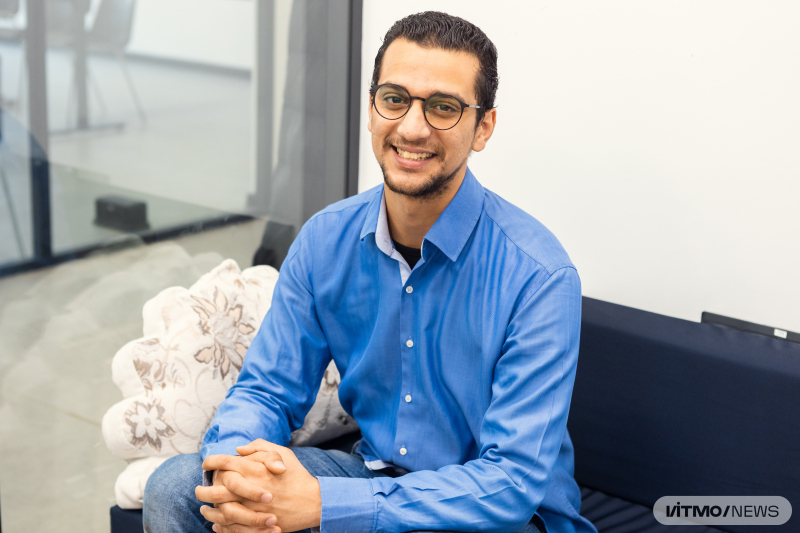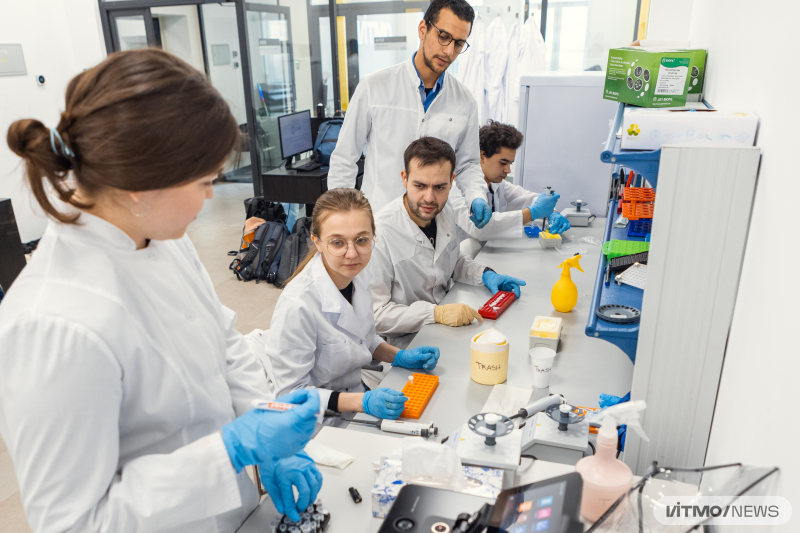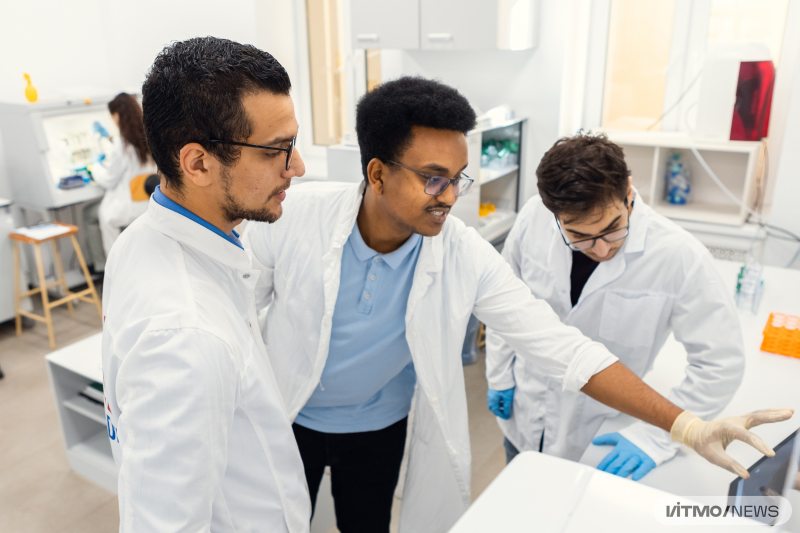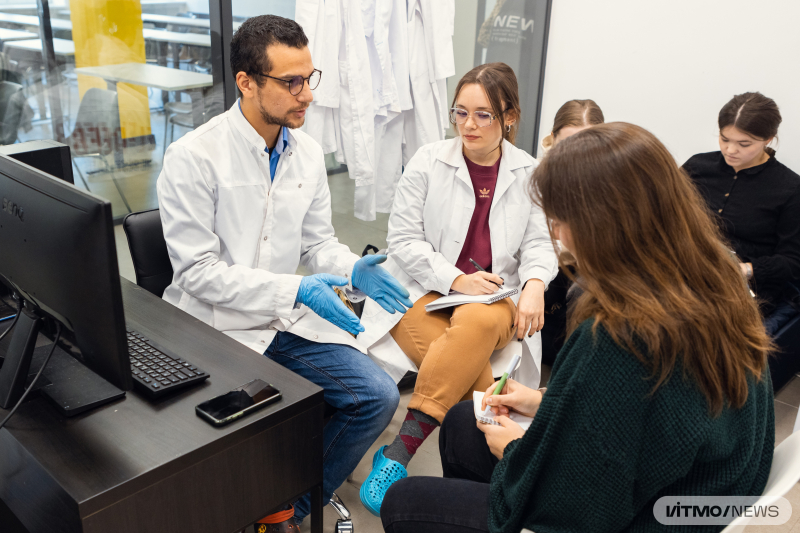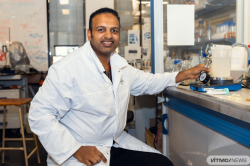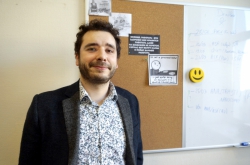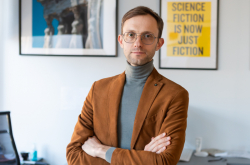Profile
Specialization: the head of the Gene-Therapeutic Agents Based on Nucleic Acids Lab (part of ITMO’s ChemBio Cluster).
Team: 23 people.
Projects: development of anti-cancer DNA robots; quantum dot-based DNA chips for detection of multiple diseases.
Following the dream
I had lots of crazy ideas for my future career when I was in high school. I have always had an interest in biology. It came easy for me, and I loved it so much that even then my mind was bustling with diverse, at times unconventional, ideas for projects. For instance, I was determined to study ectogenesis to develop an artificial womb so that women who have trouble conceiving had a chance to become mothers.
Hooked on this idea, I started thinking about what kind of major I needed to make it happen. Since I was already into DNA, RNA, and proteins, it’s no surprise that I picked to study biotechnology in 2012. My family, though, didn’t accept my choice. They tried to convince me that this specialization won’t get me a well-paid job, unlike an engineering or IT major, but I was firm in my decision.
Slowly, I realized that I couldn’t stop at my Bachelor’s. All my friends wanted to do so, but I planned to finish my Master’s and PhD studies, land a job as a postdoc, and become a young professor. To achieve this goal, I decided to apply for an international Master’s program. I chose Russia because it offers a lot of opportunities for those who want to do science. At first, I knew nothing about ITMO except for the fact that the university offers a high-quality education in Russian and English. I opted for the Molecular Biology and Biotechnology program at the university’s ChemBio Cluster. My thesis was devoted to the development of DNA structures for RNA detection and molecular computing. Once I completed my Master’s, I knew I wanted to stay at SCAMT to pursue my PhD, and that’s what I’m doing right now.
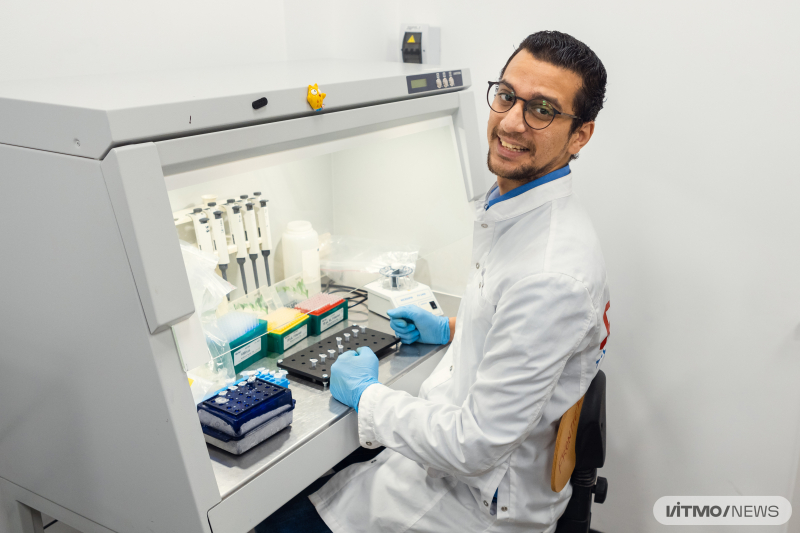
Ahmed Eldeeb. Photo by Dmitry Grigoryev / ITMO.NEWS
Conquering diseases
At the laboratory, we carry out a range of studies united by one major topic – DNA nanorobots and machines.
Our first project is devoted to the design of a high-performance DNA nanobot that detects pathogens, including SARS-CoV-2, the causative agent of COVID-19. Using its four “hands”, the robot catches a cell, unfolds a viral RNA (if any), attaches itself to it, and breaks it apart. The presence of a virus is determined by a signal of a fluorescent indicator on a spectrometer. In the future, the DNA nanorobot can be used for at-home testing. Compared to the traditional PCR testing, the novel method will be faster, more accurate, affordable, and convenient.
The developed nanorobot will also come in handy in our other study focused on cancer treatment. We believe that the robot will allow us to target cancer cells without harming the healthy ones. A binary antisense oligonucleotide consists of two oligonucleotide chains (a short DNA molecule), one of which locates a tumor marker, while the other one – a vital gene, which needs to be destroyed. The technology should help produce domestic anticancer drugs, thus reducing the country’s pharmaceutical costs and introducing its own medicine to the market.
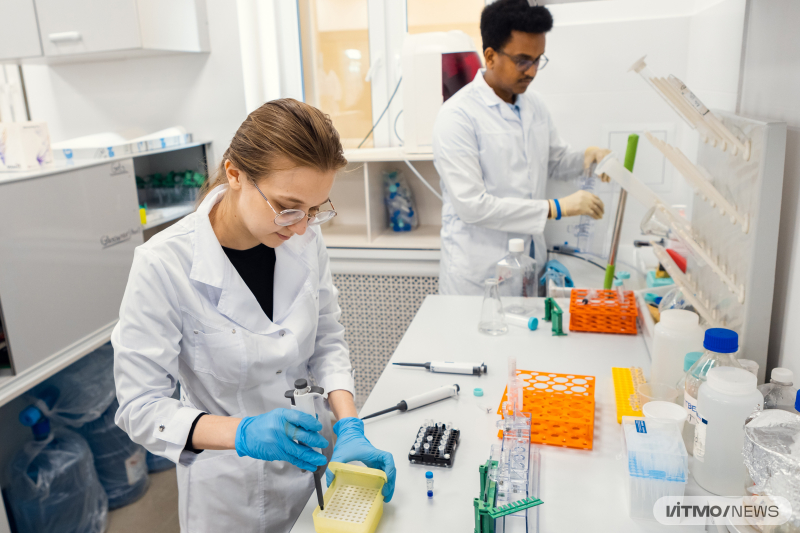
The team from ITMO’s Gene-Therapeutic Agents Based on Nucleic Acids Lab. Photo by Dmitry Grigoryev / ITMO.NEWS
Together with our colleagues from Almetyevsk State Oil Institute, we’re working on a DNA chip for virus identification and are planning to release a minimum viable product (MVP) by next year. We’re also looking for ways to turn our four-handed robot into a single system and run in vitro tests on cell cultures and hold clinical trials on animals by 2025.
Aside from that, we’re creating a digital tool that can identify the number of RNA molecules in a tube with the help of DNA robots. As we see it, the technology will beat PCR testing in terms of affordability and convenience and will be used to customize the DNA robot to resolve each individual issue.
Inside the laboratory
Last year, our project earned a grant within the Priority 2030 Program. Besides financial support, we also got our own laboratory at the Lomonosova campus, which is now called the Gene-Therapeutic Agents Based on Nucleic Acids Lab. Within a year, our team grew from four to 23 people, and the laboratory received new equipment, including a NanoDrop spectrophotometer and systems for gel electrophoresis and documentation. All of these devices help us analyze nucleic acids and the performance of DNA machines.
Read also:
ITMO Researchers Create Virus-Detecting DNA Bot
ITMO Scientists First to Propose Binary Antisense Agent for Cancer Treatment
PI + Team: ITMO Announces Project Competition for Future Lab Founders
Being a young PI
I started leading a group of first-year SCAMT students when I was in the second year of my Master’s. That was the beginning of our research team. Our team is quite international. Christina Patra, Valeriia Drozd, and Ahmed Mustafa Yassin were among the first to join, and now there are 23 of us.
Being a PI when you’re 28 is challenging yet exciting, and surely it comes with sacrifices, such as personal life. Sometimes I come to the lab at 9 AM and leave at 10-11 PM yet at other times, I find myself working all night long.
As a PI, I also have to look for ways to help my team and each teammate to grow. I have 23 people who I get to guide through their careers: from their first days at the university to their first research. I consult them on various issues: how to set scientific objectives, conduct experiments, process the data obtained, write papers, and seek funding. This isn’t an easy job but I’m beyond grateful to have such a strong wonderful team. Together we can do anything.
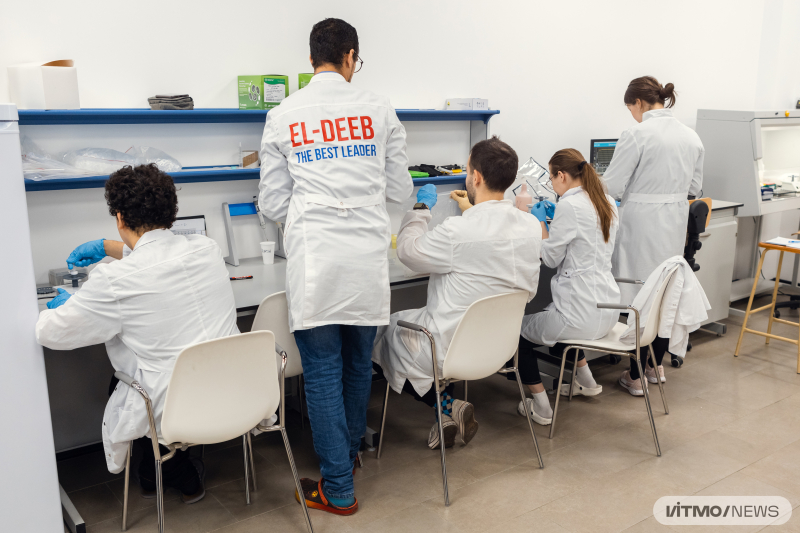
The team from ITMO’s Gene-Therapeutic Agents Based on Nucleic Acids Lab. Photo by Dmitry Grigoryev / ITMO.NEWS
Career opportunities at ITMO
I love a lot of things about ITMO. Here, I can get grants for my studies. My supervisor Dmitrii Kolpashchikov, a professor at SCAMT, often helps me with my projects and PhD thesis. At ITMO, I met like-minded people and thanks to ITMO.NEWS and the university’s press office I get to talk about my research and share them worldwide. I also like management at SCAMT. They always help and support me in each of my research endeavors.
ITMO University is running an open call for research teams wishing to win a grant of up to 30 million rubles to open their own laboratories at the university. For more details, go here.
